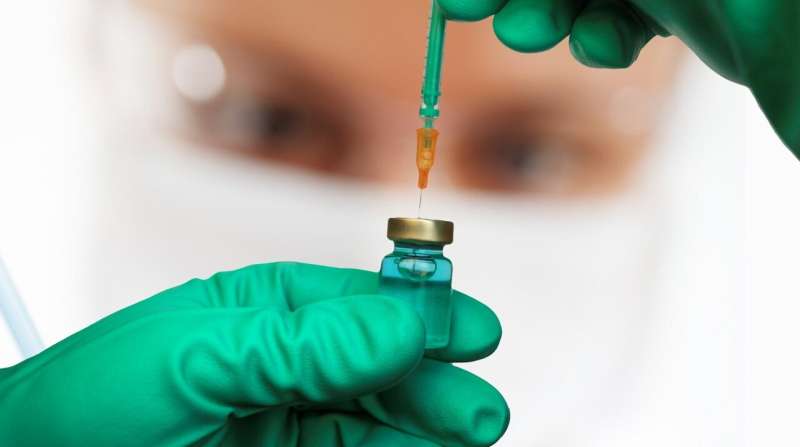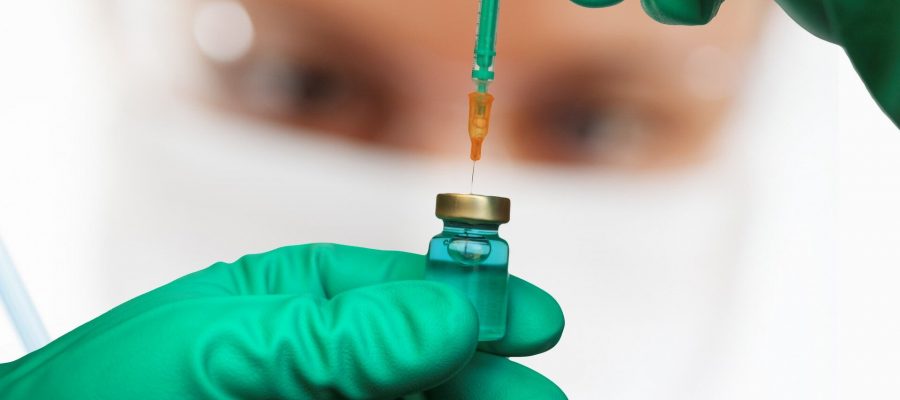
While African Americans have disproportionately higher COVID-19 infection and mortality rates compared to white individuals, they also have disproportionately lower COVID-19 vaccination rates, which is partially fueled by vaccine hesitancy.
In an effort to address health disparities that negatively impact African Americans, MU’s Wilson Majee led a study to better understand the factors that contribute to COVID-19 vaccine hesitancy among African Americans. He found compounding factors, including historical mistrust in government and personal experiences of racism within the health care system, contribute to COVID-19 vaccine hesitancy for African Americans.
Majee interviewed church leaders, lifestyle coaches and participants of Live Well by Faith, a community faith-based wellness program run by the Boone County Health Department that promotes healthy living and addresses chronic health conditions in predominantly African American communities in Boone County, Missouri. Both historical mistrust in government and personal experiences of racism within the health care system were common themes among African American community members for not wanting to receive the COVID-19 vaccine.
“The Tuskegee Syphilis Study was repeatedly mentioned as a popular example of unethical medical treatment toward African Americans by the federal government, and once that trust is lost, it can be hard to regain even as time goes on,” said Majee, an associate professor in the MU School of Health Professions. “One respondent mentioned the common reminder from the federal government of never forgetting the tragic events of September 11, 2001, yet African Americans are expected to forget the unethical research practices and the history of injustice and racism from their own federal government.”
Majee also told the story of another respondent who reflected on his own personal experience in the health care industry after he tested positive for COVID-19.
“This elderly man went to the hospital but was sent home, and after his health declined, he went back to the hospital but was sent back home again,” Majee said. “When he went back a third time, he was told they had made a mistake and he was given a hospital bed so he could be monitored, and he could not help but wonder if his experience would have been different if he was not Black?”
Other factors contributing to COVID-19 vaccine hesitancy included how fast the vaccine was developed, a lack of Black physicians providing the vaccines and misinformation spread on social media.
Majee added social determinants of health, including that African Americans tend to be poorer and have less access to education, health care and healthy foods, as well as structural determinants of health, including that African Americans tend to be affected by racism in the housing, education, employment and health care industries, all compound together to contribute to worse health outcomes for African Americans.
“African Americans are more likely to have lower-income, in-person jobs at crowded places that cannot accommodate work-from-home or social distancing, so they are more likely to be exposed to and infected by COVID-19,” Majee said. “Combine that with African Americans already being poorer and less likely to be able to afford quality health insurance, the historical mistrust in government and personal negative experiences with the health care industry, and you quickly see how all these factors start to work together to negatively impact health outcomes for African Americans.”
Community wellness programs like Live Well by Faith play a key role in helping to address these inequities, Majee said. Receiving accurate information about the COVID-19 vaccine from trusted community members, such as African American church leaders and lifestyle coaches, played a big role in promoting positive health outcomes.
“African American members of the congregation at Black churches believed in the information they were receiving because it was coming from people they trusted that looked like themselves,” Majee said. “The key about the Live Well by Faith program is that is it rooted in the community, and we saw it was helpful in getting more African Americans to receive the COVID-19 vaccine.”
Majee’s main research goal is to find ways in which those with power, including local, state and federal governments, church leaders, researchers and adult role models, can distribute resources that engage vulnerable populations in their communities.
“My passion is to empower people in resource-limited communities by listening to their ideas and allocating resources to develop interventions that meet the needs of struggling people,” Majee said. “There is a great need to elevate the health of minorities, as the disparities are huge and will continue to grow if we fail to act now.”
Source: Read Full Article
